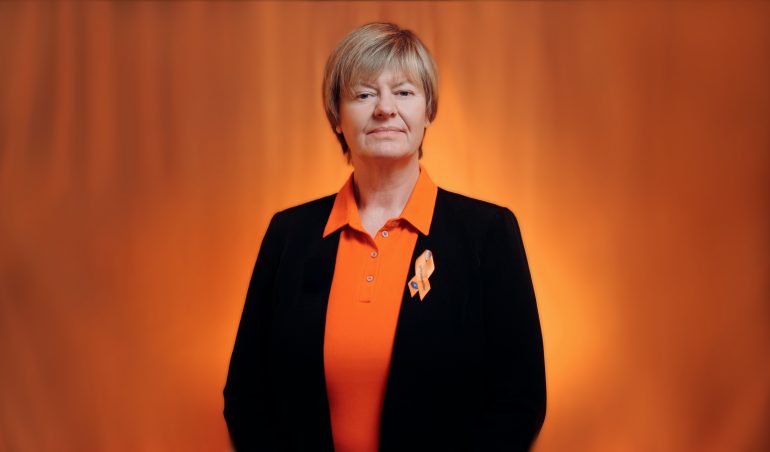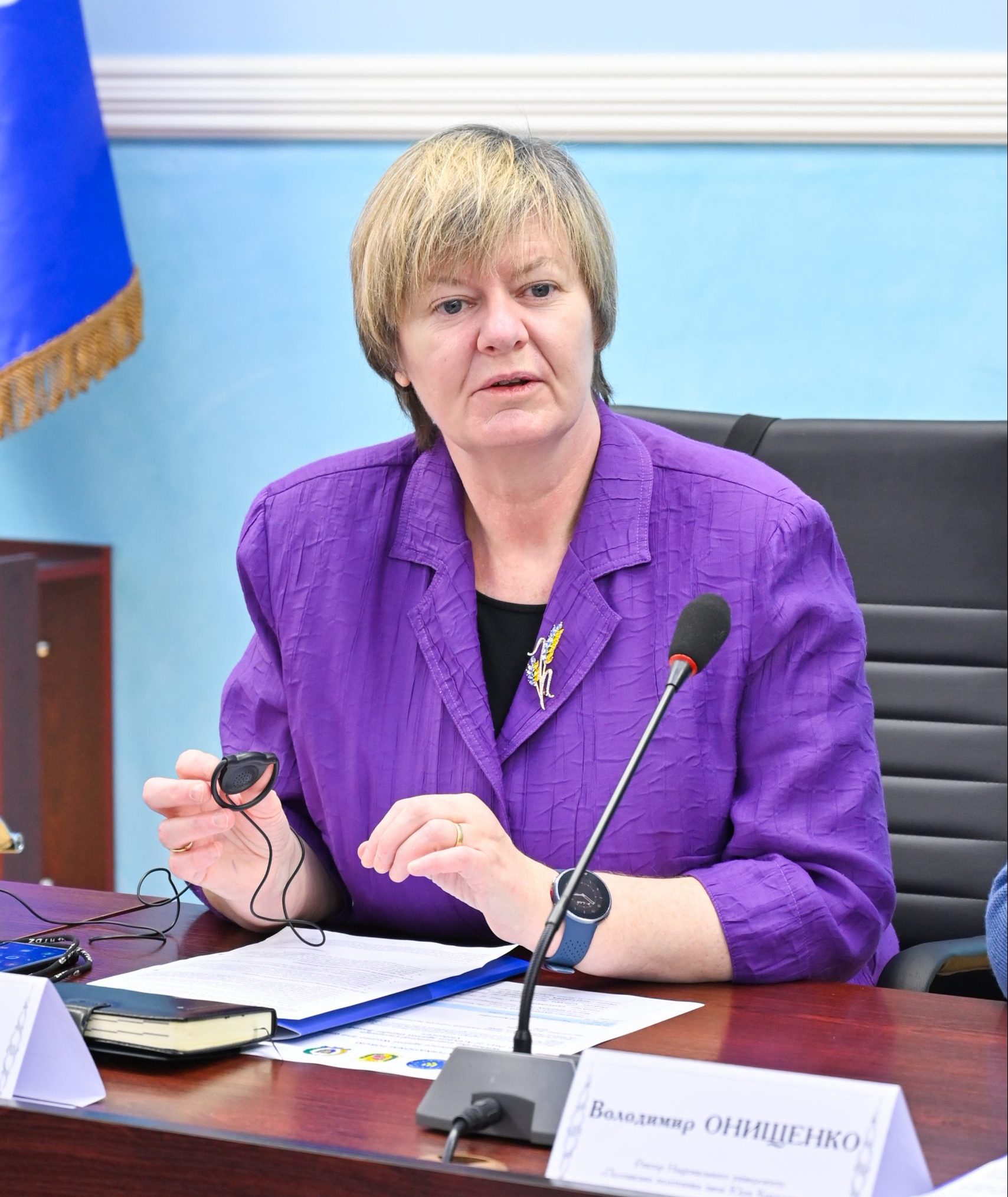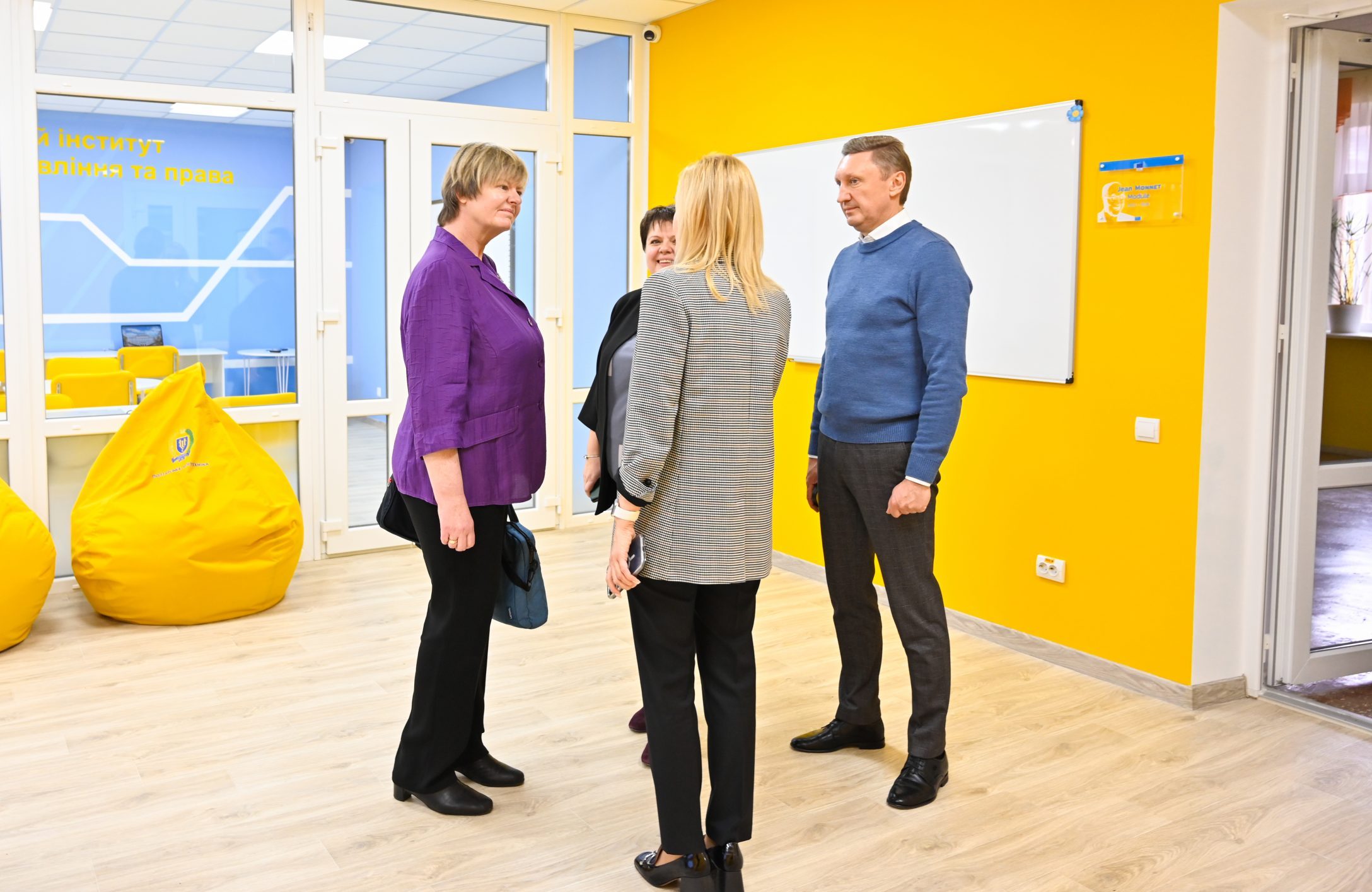“Tackling the Root Causes of Inequality and Violence Starts with Us”
November 29, 2024
As the 16 Days of Activism campaign calls for global action against gender-based violence, Maura O’Sullivan, the Deputy Head of the EU Advisory Mission (EUAM) Ukraine, discusses the Mission’s critical role in supporting Ukraine’s efforts to combat this type of violence during the ongoing war. She highlights EUAM’s initiatives aimed at raising awareness and strengthening local law enforcement capabilities to address this pressing issue, while reflecting on the personal responsibility of each of us to stand up for the most vulnerable in these challenging times.
Why is it important for EUAM Ukraine to participate in the 16 Days of Activism campaign, particularly in the context of Ukraine?
The 16 Days of Activism campaign is a powerful global platform for raising awareness about gender-based violence, and it’s crucial that EUAM takes an active role, especially in the context of Ukraine. Ukraine is facing unprecedented challenges due to the ongoing war, and the protection of vulnerable groups, particularly women and children, has never been more important. Men are, of course, also affected by different forms of violence. For us, participating in this campaign is not just about raising awareness; it’s about reinforcing our commitment to the rule of law, human rights, and the protection of the most vulnerable. This is not only a humanitarian priority but also an essential element of rebuilding a peaceful and stable Ukraine, where human rights are protected and respected.
What specific initiatives is EUAM Ukraine undertaking this year to raise awareness about gender-based violence?
This year, EUAM has focused on several key initiatives to raise awareness and drive action on gender-based violence. One of our primary efforts is collaborating with Ukrainian law enforcement agencies and civil society organisations to enhance their response mechanisms. For example, we have partnered with the Ministry of Internal Affairs (MoIA) to launch a photo campaign titled “There is no place for domestic violence at home” at the MoIA University in Odesa, engaging the local community in discussions about domestic violence. We are also distributing informative booklets and calendars for gender-based violence experts and service providers to ensure they have the necessary tools to support survivors.
Additionally, EUAM is convening inter-agency roundtables across Ukraine to foster collaboration and knowledge sharing. One example is the roundtable on “Sexual and Gender-Based Violence: The Trauma Imprint” in Mykolaiv, which brought together the National Police, regional prosecutors, and civil society organisations from Mykolaiv and Kherson regions. Another roundtable in Odesa brought together regional police officers, prosecutors, civil society organisations, and international partners.
In Lviv we also organise thematic awareness-raising sessions at universities such as Lviv MoIA University and Ivan Franko National University, focusing on gender-based violence and its impact. Furthermore, in collaboration with local police counterparts—including the Patrol Police and Juvenile Prevention Unit—we are conducting joint awareness campaigns in schools in Lviv Region. These sessions, which are part of our ongoing engagement in the 16 Days of Activism campaign, are designed to ensure that the next generation is better equipped to recognise and address gender-based violence.

We are also holding two international forums on addressing gender-based violence in Poltava and Dnipro. The purpose of these events is to raise awareness and engage local communities in discussions on how to address this pervasive issue. These events are vital in fostering dialogue and encouraging action towards a more gender-sensitive society.
How does EUAM support Ukrainian law enforcement and other authorities in addressing gender-based violence, especially during the ongoing war?
EUAM plays an important role in strengthening the capacity of Ukrainian law enforcement agencies to respond to gender-based violence. This includes providing training on the identification, investigation, and prosecution of gender-based violence cases. Given the challenging circumstances of the war, we are also focused on helping Ukrainian authorities navigate additional difficulties, such as displacement and trauma, that victims face. Our Mission ensures that law enforcement can operate with sensitivity, professionalism, and the necessary tools to protect victims and hold perpetrators accountable.
On a personal note, why do you feel it’s important to be part of the 16 Days of Activism against Gender-Based Violence campaign?
Personally, being part of the 16 Days of Activism campaign allows me to contribute to a global movement that seeks to make a real difference in the lives of women and girls, as well as other vulnerable groups. In Ukraine, the war has made the need to put a stop to gender-based violence more urgent than ever. I feel a deep responsibility not only to support the work of EUAM but also to raise my voice in solidarity with those suffering from violence and injustice. This campaign offers an opportunity to remind everyone that violence against women is not just a personal issue—it is a societal one that we must address together.
Looking ahead, what further steps should be taken to protect women and girls and eliminate gender-based violence in Ukraine?
Ukraine has already made significant progress in this sphere. A major milestone was the ratification of the Council of Europe Convention on Preventing and Combating Violence Against Women and Domestic Violence, also known as the Istanbul Convention, in 2022. I want to stress that Ukraine achieved this even amid Russia’s full-scale invasion. The implementation of the Istanbul Convention is a strong step towards improving legislation and responses to gender-based violence. Ukraine has also adopted an Act on Equal Pay for Women and Men, and gender mainstreaming is a key element in the Ukrainian Government’s overall strategy to reform the civilian security sector. We are here to support our counterparts in this as much as possible.

We must also remember that tackling the root causes of inequality and violence starts with us. To build lasting peace, we must consider every member of society, including women and girls, persons with disabilities, persons belonging to minorities, migrant women and girls, LGBTIQ+ persons, and veterans—each of whom faces particular risks.


